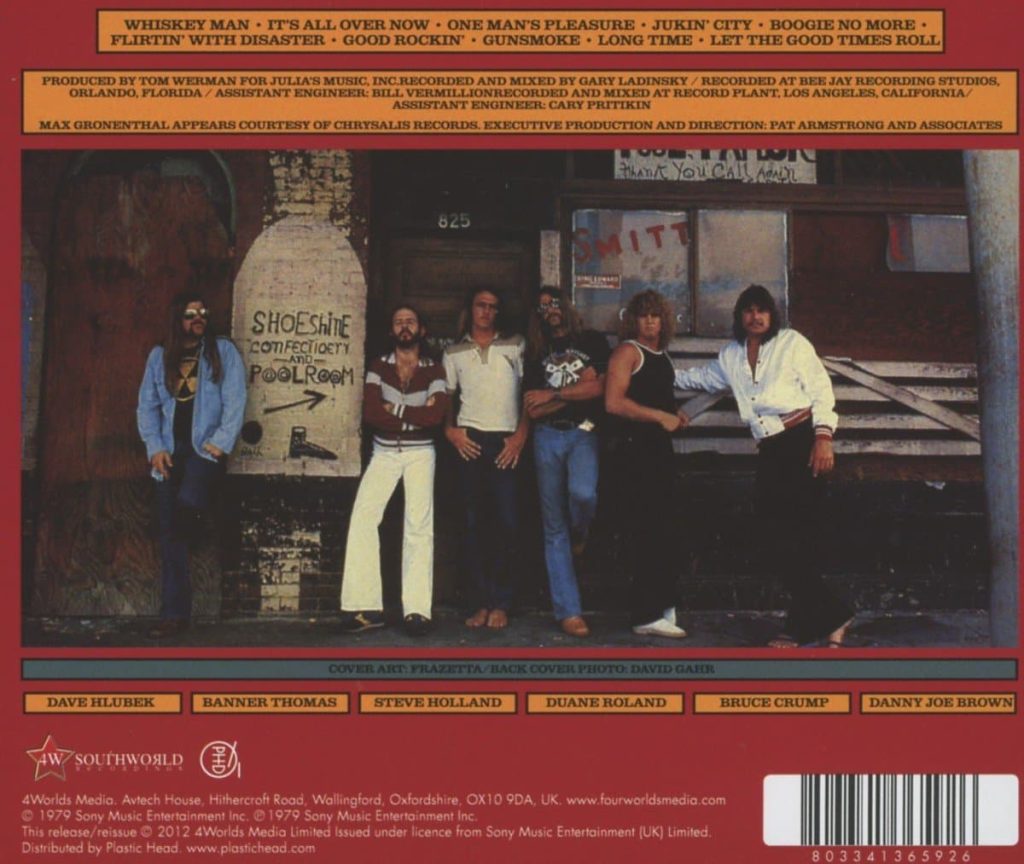
“Whiskey Man” – Molly Hatchet’s Rowdy Anthem of Rebellion and Consequence
When Molly Hatchet unleashed “Whiskey Man” in 1979 as part of their second album, Flirtin’ with Disaster, they delivered a song that captured the raw essence of Southern rock’s untamed spirit. Known for their boisterous blend of rock, blues, and outlaw country, the band took full advantage of their hard-hitting style to craft a tale of recklessness and self-destruction. Like many of their songs, “Whiskey Man” reflects themes of excess, rebellion, and the emotional price that comes with living on the edge.
“Whiskey Man” tells the story of a character consumed by his reliance on alcohol, personifying the drink as a companion with a dangerous influence. The chorus’s hook—“Whiskey man, don’t you play around with me!”—underscores the tension between indulgence and survival. The protagonist knows that the bottle offers temporary relief, but the allure of whiskey comes at a high price. As with much of Southern rock’s storytelling tradition, “Whiskey Man” doesn’t shy away from confronting the darker realities of life on the road and the consequences of reckless living.
Molly Hatchet’s lyrics capture the push-and-pull between freedom and addiction, with whiskey acting as both a friend and a foe. The song echoes sentiments familiar to those who follow the outlaw lifestyle—a refusal to conform, but with the nagging awareness that such choices may end in regret.
From the first notes of “Whiskey Man,” the band’s signature triple-guitar assault kicks in, creating a gritty, high-octane sound. Guitarists Dave Hlubek, Steve Holland, and Duane Roland provide scorching riffs that drive the song forward, while the rhythm section—anchored by Bruce Crump’s drums and Banner Thomas’s bass—adds punch and swagger. The music mirrors the chaos of the whiskey-fueled lifestyle the lyrics describe, making the listener feel like they’re part of the wild ride.
Lead vocalist Danny Joe Brown delivers the lyrics with raspy, Southern grit, adding authenticity to the narrative. His voice—a mix of defiance and world-weariness—captures the essence of a man torn between his love for freedom and the consequences of indulgence. Brown’s vocal delivery, paired with the band’s dynamic instrumentation, gives “Whiskey Man” a distinct edge, making it one of the standout tracks from Flirtin’ with Disaster.
Southern rock has always thrived on themes of individualism, freedom, and consequence, and “Whiskey Man” is no exception. At its core, the song speaks to the inherent tension between living life to its fullest and recognizing the dangers of excess. The whiskey bottle, in this case, becomes a metaphor for the vices that can both liberate and destroy.
The rebellious undertone in Molly Hatchet’s music aligns with the spirit of bands like Lynyrd Skynyrd and The Allman Brothers Band, though Hatchet’s sound leans heavier, bordering on hard rock. In “Whiskey Man,” the guitars roar and the drums thunder, embodying the reckless abandon of the song’s protagonist. But beneath the swagger lies a cautionary tale—a reminder that every indulgence comes with a cost.
While “Whiskey Man” didn’t climb the charts like other Molly Hatchet hits such as “Flirtin’ with Disaster,” it remains a fan favorite at live performances. The song’s high-energy riffing and anthemic chorus make it a natural fit for barroom singalongs and rowdy Southern rock shows. Over the years, it has become a cult classic among Molly Hatchet fans, appreciated for both its musical intensity and its lyrical honesty.
“Whiskey Man” stands as a quintessential Molly Hatchet track—loud, unapologetic, and brimming with energy. It exemplifies the band’s ability to blend storytelling with hard-hitting instrumentation, creating songs that resonate with listeners who appreciate both rock and outlaw country influences. More than just a song about drinking, “Whiskey Man” is about the choices we make, the temptations we face, and the fine line between freedom and self-destruction.
With its relentless guitar riffs, pounding rhythm, and gritty vocals, “Whiskey Man” captures the essence of Southern rock’s rebellious spirit. It’s a song that celebrates life on the edge while reminding us that every thrill carries a risk—a fitting anthem for a band that always lived by its own rules.